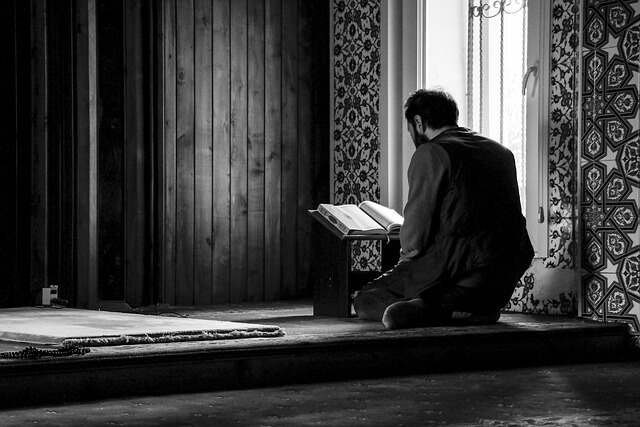Understanding the Essence of Islamic Prayer: A Divine Connection with Allah
Understanding Islamic prayer, known as Salah or Salat, is a fundamental pillar of the Islamic faith, and it plays a crucial role in the lives of millions of Muslims around the world. It is not merely a ritualistic act but a deeply spiritual practice that fosters a profound connection with Allah, the Almighty. In this article, we will explore the significance of Islamic prayer, its core elements, and the spiritual journey it offers to believers.
The Importance of Prayer in Islam
Prayer holds a central position in Islam, and it is the second of the Five Pillars of Islam, which are the foundation of a Muslim’s faith and practice. It is an essential act of worship and serves as a means of communication with Allah. Muslims are obligated to perform five daily prayers, which are observed at specific times throughout the day and night: Fajr (pre-dawn), Dhuhr (midday), Asr (afternoon), Maghrib (sunset), and Isha (night). Each prayer serves as a moment to pause from worldly activities, renew one’s intentions, and seek closeness to the Creator.
The Elements of Islamic Prayer
- Niyyah (Intention): Every act of Islamic prayer begins with a sincere intention. Muslims purify their intentions, focusing solely on worshiping Allah, and setting aside any worldly distractions or concerns.
- Adhan (Call to Prayer): Before each prayer, the Adhan is announced from mosques, reminding believers of the upcoming prayer and inviting them to join in worship.
- Wudu (Ablution): Muslims perform ablution, a ritual cleansing of the face, hands, arms, feet, and other specified body parts, signifying both physical and spiritual purification.
- Takbir (Opening Prayer): The prayer starts with the Takbir, where worshippers raise their hands and recite “Allahu Akbar” (Allah is the Greatest), affirming the exalted status of Allah.
- Standing (Qiyam): Muslims stand in straight rows, symbolizing unity and equality before Allah. During this position, various verses from the Quran are recited.
- Ruku (Bowing): Muslims bow down with their hands on their knees, expressing humility and submission before Allah.
- Sujood (Prostration): Muslims go into prostration, placing their foreheads, noses, palms, knees, and toes on the ground, acknowledging the greatness of Allah.
- Tashahhud: In the final sitting position, Muslims recite the Tashahhud, bearing witness to the oneness of Allah and the prophethood of Muhammad (peace be upon him).
- Tasleem (Salutation): The prayer concludes with a greeting to the right and left, signifying the end of the prayer and expressing peace to those around them.
Islam Prayer Times (Salah) : Fajr, Zuhr, Asr, Maghrib, Isha, Jumu’ah
The Spiritual Essence of Islamic Prayer
Islamic prayer is more than just a series of physical movements and recitations; it is an opportunity for believers to strengthen their relationship with Allah. It provides a sacred space for reflection, repentance, and gratitude. Through prayer, Muslims seek forgiveness for their shortcomings, express gratitude for blessings, and seek guidance and protection from Allah.
Moreover, the regularity of five daily prayers serves as a constant reminder of Allah’s presence and the significance of living a righteous life. It helps Muslims maintain a balanced and disciplined lifestyle, keeping them mindful of their duties and responsibilities towards Allah and humanity.
Amar Makruf Nahi Mungkar: Promoting Goodness and Forbidding Evil in Islam
What is the symbolic value of prayer in Islam? 5 examples
In Islam, prayer (salah) has great symbolic and spiritual value. It is considered one of the five pillars of Islam, and is an obligation for every Muslim who has reached puberty and is physically and mentally capable of practicing it. Here are 5 symbolic values of prayer in Islam:
- Prayer is a manifestation of obedience to Allah: by performing prayer, the believer demonstrates obedience to Allah and respect for His commandments. Prayer is seen as an expression of the human being’s total submission to the will of God.
- Prayer strengthens faith and spirituality: it is a means of strengthening the faith and spirituality of a Muslim. It allows us to remember the presence of God at every moment, and to concentrate on the essential, namely eternal life in the hereafter.
- Prayer teaches humility and humiliation: Prayer involves physical gestures of submission such as prostrating, bowing and standing before Allah. It reminds believers of their status as servants of Allah, and incites them to humility and humiliation.
- Prayer strengthens the Muslim community: it is also a means of strengthening the Muslim community, as it encourages Muslims to gather together five times a day to fulfill this religious obligation. Group prayer is also considered more meritorious than individual prayer.
- Prayer purifies the soul: by performing prayer, the believer asks Allah to purify him of his sins and bring him closer to Him. Prayer is therefore seen as a way of purification and coming closer to God.
Conclusion
Islamic prayer is a profound and integral aspect of the Islamic faith. It serves as a direct means of communication between Muslims and Allah, nurturing spirituality, and promoting self-discipline. Through prayer, believers find solace, strength, and purpose, helping them navigate the challenges of life with steadfastness and humility. It is not merely a ritual, but a transformative practice that facilitates a deep and meaningful connection with the Divine, bringing peace and contentment to the hearts of those who engage in it with sincerity.
Sources: IslamSuciBeriman, Al-Islam, IslamOnline
Photo credit: mucahityildiz via Pixabay



